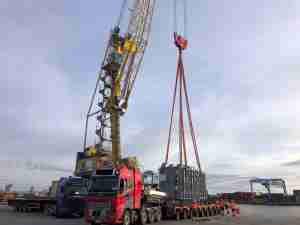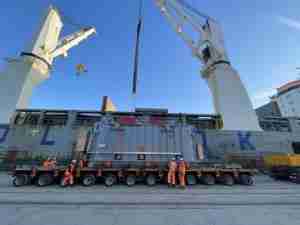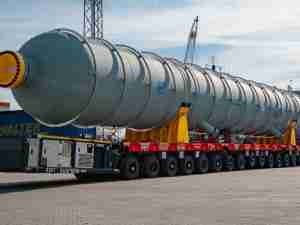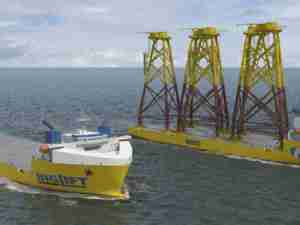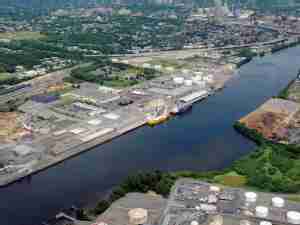INTERCARGO’s 2017–2018 Benchmarking Report is published after a second year of solid improvement in the dry bulk market. Back in December 2017, the Baltic Dry Index went above the 1,700 points, after the historic low below 300 points it reached in early 2016; through to 2018 it rose even higher to 1,774 points in August. The global capacity of the fleet rebounded to a growth of 4% in 2017, which receded in 2018. A positive momentum in demand has been balancing any expansion witnessed on the supply side, yet a number of factors moderate optimism through to 2019. (Geo-) political and economic shifts, trade tensions, a fragile growth in emerging markets, as well as a softening of GDP growth in developed economies, are some of them.
Other than the fundamentals’ balance, the maritime industry and dry cargo shipping are already going through a period of great change. Shipowners are faced with environmental challenges and fast technological evolutions, while they have to keep their operations cost competitive in order to continue serving the world’s trade needs, There is no doubt that dry bulk shipping should take pride that it has been providing efficient and environmentally friendly services to the world during the past decades up to the present time. Moreover it is looking confidently into the future, while remaining a low profile industry.
Regulatory requirements have been progressing at an equally rapid pace as in the previous two years – and this continue. In this context, INTERCARGO’s three reference pillars of safety, efficiency, and environmental soundness with our constant aim for “quality & operational excellence” remain more relevant than ever. The current report is focused for one more year on these priorities. Our benchmarking largely refers to year 2017, as despite the current ‘age of information’, data for bulk carriers’ inspections unfortunately still becomes available with considerable time lag and is collected manually. This does not only cause an unwanted delay in identifying areas of concern, but also introduces mistakes. We have tried to limit them to the best of our ability and we ask for the readers’ understanding in this respect.
With safety for crews and ships coming first, casualties in 2017 were marked by the tragic losses of 32 seafarer lives as a result of the sinking of M/V Stellar Daisy and M/V Emerald Star. Lessons learnt from past incidents play an important role in determining where additional safety improvement is necessary. The importance of investigating an incident and the subsequent publication of a casualty investigation report in a timely manner, in order for lessons to be learnt, cannot be overstressed. Moisture related cargo failure mechanisms, widely known as liquefaction, continue to be a major concern for dry bulk shipping. On the other hand, the ten-year trends in annual average number of lives and ships lost within the bulk carrier industry show positive signs of safety improvement.
Classification Societies provide valuable services for the design, construction and maintenance of ships, among other technical services enhancing maritime safety and pollution prevention. IACS members increased their market share to above 95% of the dry bulk global fleet in 2017, which is encouraging given the stronger overall port state control performance of dry cargo carriers classed with IACS members compared to non-IACS Classification Societies.
The total number of detentions fell in 2017, despite an increase of the global fleet. The 12 leading Flag Registers account for over 87% of the global dry cargo fleet. For bulk carriers under these Flags, an overall improvement in the deficiencies index was also recorded.
In this context, and for one more year, we are proud to note that INTERCARGO-entered ships continue to significantly outperform the industry averages in respect of both Detentions and Deficiencies per inspection, in line with INTERCARGO’s policy that dry cargo vessels entered by Members should be capable of demonstrating such distinctive performance. The INTERCARGO-entered fleet maintained its outstanding performance in 2017 despite the annual growth it recorded of the order of +74% (basis dwt) to the previous year. Compared to the number of bulk carriers registered by Flag, this evolution brought the INTERCARGO-registered fleet on ‘Flag equivalent’ terms from sixth place in 2016 to second place in 2017.
Our annually updated owners’ benchmarking tables in the relevant section allow shipowing companies to benchmark their fleets’ performance against the global dry cargo fleet Detention rates and Deficiencies per Inspection ratio indices.
Our Negative Performance Indicators update identifies high occurrence, increasing and decreasing trends per category of incidents in 2017.
The International Group of P&I Clubs increased their market share to above 88% of the global dry cargo fleet. The port state control ‘quality’ performance of their respective fleet continued to outperform the non-IG P&I fleet.
The section on Port State Control (PSC) provides an overview of the most important PSC regimes and, among other, insights per PSC scheme on inspections and detentions of bulk carriers, the ship targeting systems and performance indicators, and concentrated inspection campaigns. INTERCARGO continues its efforts in the direction of MoU PSC regimes and their members taking stricter control and being more transparent with their internal self-discipline measures.
Members and non-Members of our Association are offered the opportunity and are encouraged to continue submitting the dedicated Reporting forms to INTERCARGO’s Secretariat. This feedback reporting is valuable in order to assess problems on an ongoing basis, in relation to terminals, loading/unloading at anchorage, and crew injury frequency and lost time, as main examples.
The Benchmarking Report is one of INTERCARGO’s initiatives in its pursuit of a safe, efficient, high quality and environmentally friendly dry cargo shipping industry. Other INTERCARGO’s publications (see last pages of this report about our annual “Bulk Carrier Casualty Report” and “Carrying Solid Bulk Cargoes Safely”) and activities (such as participation in Industry Working and Correspondence Groups, and of course at IMO) are related to specific items of our work programme, including Cargoes, Design & Construction, Machinery & Operations, Ballast Water, Emissions, Ports & Terminals, Life Saving, and the Human Element, to name a few.
INTERCARGO promotes best practices in shipping and represents the dry cargo shipping interests at IMO, other industry fora and the broader business context, basing its strategies on the principle of free and fair competition. If already not one, becoming a Member of INTERCARGO will help our Association strengthen its voice and meet its objectives.
